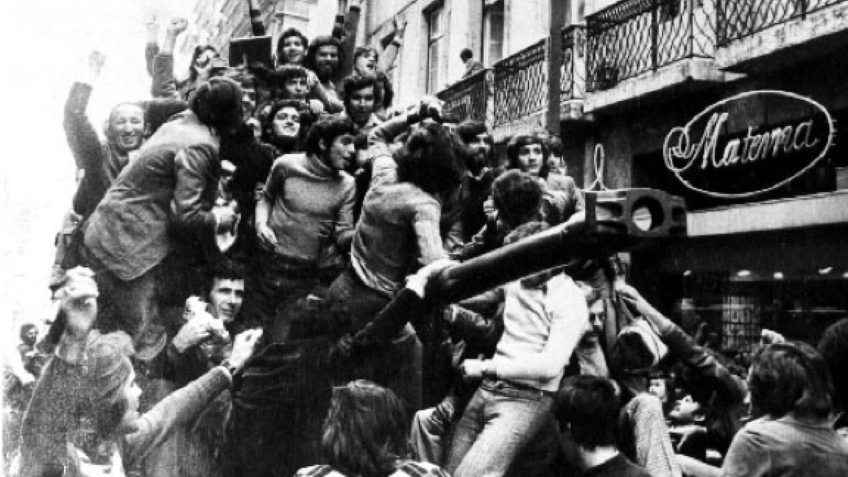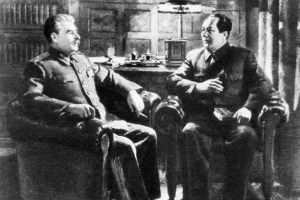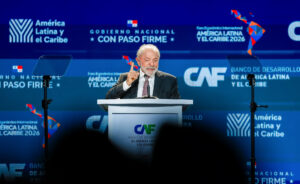
Movement came from discontent with the dictatorial regime of the Estado Novo; marked the overthrow of Salazarism
The Carnation Revolution, in Portugal, turns 50 this Thursday (April 25, 2024). The name is inspired by the fact that the Portuguese distributed carnations to soldiers who fought to reestablish democracy. The movement came about because of discontent with the dictatorial regime that had been installed in 1933.
It was the Portuguese military who overthrew the government on April 25, 1974. It was the end of Salazarism – as the form of government implemented by the Portuguese nationalist dictator António de Oliveira Salazar (1889-1970) became known. With the revolution, Portugal began to have a democratic regime that continues to this day.
Adriano de Freixo, professor at the Institute of Strategic Studies at UFF (Universidade Federal Fluminense), states that the officers of the Portuguese Armed Forces were unhappy with certain issues of a corporate nature, but, mainly, with the wear and tear created by the maintenance of a New State in colonial wars.
One of the poorest countries in Europe, Portugal invested a lot of money in trying to maintain its colonies. “A country that was already poor, spending most of its budget on military expenses, had a strong impact on the Portuguese economy”, says the expert.
According to Freixo, discontent with the Estado Novo was aggravated by the removal and then the death, in 1970, of the president of the Council of Ministers, António de Oliveira Salazar. “He was replaced by Marcello Caetano [1906-1980]which did not have the same skill and articulation capacity as its predecessor”.
“So, there is a change in the regime’s leadership, there is a context of economic crisis that will be profoundly aggravated by military spending on colonial wars and there is, subsequently, the wear and tear generated by the wars themselves”says the professor.
According to the expert, the military began to realize that the colonial wars had no military solution, that is, Portugal would never win these liberation wars because “they were fighting against movements strongly rooted in local populations that wanted independence”.
The solution, then, would have to be political and would not come with the Estado Novo government. “The way would be to overthrow that government that did not want to end the colonial wars”says Freixo.
With the revolution, General António de Spínola (1910-1996) assumed the role of President of the Republic on May 15, 1974. Adelino da Palma Carlos (1905-1992) was appointed prime minister on May 16, 1974.
The new Portuguese democratic Constitution came into force on April 25, 1976. The date is a national holiday in Portugal and known as Freedom Day.
Impacts not Brazil
The professor says that one of the impacts of the Carnation Revolution in Brazil was that opponents of the Brazilian dictatorship (1964-1985) began to see with hope what was happening in Portugal: “Let’s say that the overthrow of the dictatorship in Portugal sparked hope in the opposition that was fighting against the dictatorship in Brazil”.
Another impact was that many Brazilian exiles went to Portugal, such as former deputy and journalist Márcio Moreira Alves (1936-2009), who was in Cuba.
The world of music was also impacted. The song “So Much Sea”, by Chico Buarque, was banned in Brazil. The composition, from 1975, hailed the Carnation Revolution.
Listen (1min24s):
Here are the lyrics of the song “So Much Sea” by Chico Buarque:
I know you’re having a party, man
Happy guys
And while I’m away
Save a carnation for me
I wanted to be at the party, man
With your people
And personally pick some flowers
In your garden
I know there are leagues separating us
So much sea, so much sea
I also know how much it takes, man
Browse, browse
It’s spring there
Here I am sick
Urgently send some scent
From rosemary
Right in power
Unlike Brazil, the European country lives under a semi-presidential regime, in which the prime minister is the head of the Executive and the president is the head of State.
In the 50th anniversary of the Carnation Revolution, Portugal is in charge of the right, with the leader of the AD (Democratic Alliance), Luís Montenegro, as prime minister. He took office on April 2. Replaced the leftist Antonio Costafrom the PS (Socialist Party), which has governed the country since 2015.
Montenegro’s possession marked the advance of the right in Portugal. In the March 2024 elections, the PS, previously a majority in the Assembly of the Republic, lost seats to the AD, formed by the prime minister’s party, the PSD (Social Democratic Party), and the CDS-PP (Social Democratic Center – Popular Party) and PPM (Popular Monarchic Party).
Source: https://www.poder360.com.br/historia/revolucao-dos-cravos-faz-50-anos-com-direita-no-poder-em-portugal/

